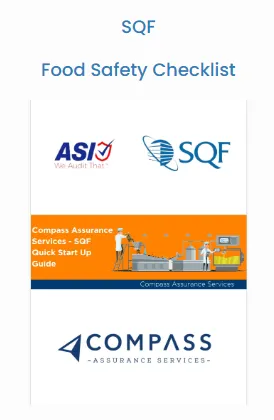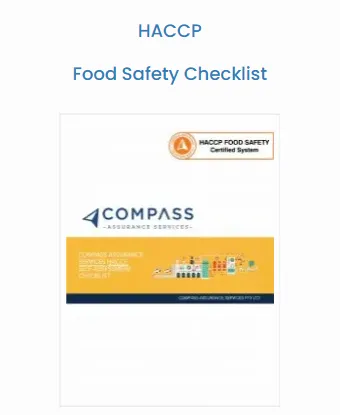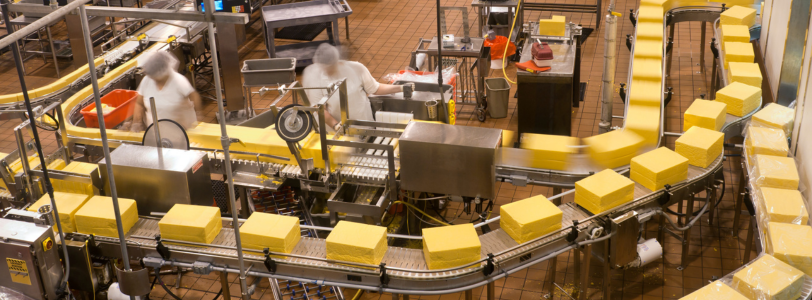Have you ever been at the grocery store, reaching for your favourite food items, and noticed labels covered in acronyms like GFSI, SQF, BRC, or FSSC 22000? We’ve all probably wondered at some point, what do they even mean? There are so many different food safety certifications these days, it’s enough to make your head spin! Fear not, fellow food enthusiasts, because this blog post is here to break down the most common GFSI certifications in Australia and help you understand which one might be right for your business.
First things first, what do these acronyms mean?
- GFSI – Global Food Safety Initiative
- BRC – Brand Reputation through Compliance Global Standard
- SQF – Safe Quality Foods Initiative
- FSSC 22000 – Food Safety System Certification 22000
GFSI
We’ll start with what GFSI is and what they do.
As the name suggests, GFSI’s sole purpose is to improve the safety of our food across the globe. They collaborate with the world’s leading food companies to help ensure all our food remains safe for consumption. These companies include household names like McDonald’s, PepsiCo, Nestlé, Unilever, and Walmart. Together, they form a coalition that analyses food safety standards around the world, searching for the most effective ones.
Since its inception, GFSI has gone on to recognise multiple food safety certification programs as credible and effective. For these programs to become GFSI-recognised, they undergo a rigorous benchmarking, harmonising, and cross-referencing process. Some of the most common GFSI-recognised programs in Australia include BRCGS (BRC), FSSC 22000, and SQFI (SQF). However, not all these certifications will suit every business, so we have written this blog to break down some of these standards and help Aussie businesses and consumers understand a little more about them.
BRC
Previously, BRC stood for British Retail Consortium but was rebranded in 2016 to reflect a broader reach beyond just retailers. This rebranding has proven successful, as out of the three certifications, BRC has the most global recognition due to its strong UK and Europe association.
BRC combines food safety, quality, and legal compliance with detailed requirements for process and hygienic control. This approach results in a BRC certification covering more than just food safety; it also covers packaging materials and distribution.
This certification is often required by retailers and stakeholders in the food supply chain. It can benefit a company by enhancing its reputation, building customer trust, meeting regulatory requirements, and improving operational efficiencies.
SQF
SQF is the only GFSI-recognised standard that covers the entire food supply chain, from farm to fork. SQF was formed in 1995 on Australian shores and was recognised by GFSI in 2004. In 2021, SQF released the latest edition of their food safety standard (edition 9), which includes 11 industry-specific codes.
SQF differentiates itself by thoroughly evaluating a business’s food manufacturing or processing facilities for compliance with food safety and quality standards. The SQF standards assess practices, processes, and documentation to guarantee the production of safe and high-quality food products.
Since SQF covers the entire food chain, any business working within the food sector could benefit from achieving the certification. However, to obtain this certification, you need to have implemented a HACCP plan throughout your business. Therefore, if you haven’t done this yet, maybe a HACCP certification would be a better option.
FSSC 22000
FSSC 22000 has the advantage of being based on ISO’s food safety management certification, ISO 22000. Therefore, this certification is the brainchild of ISO 22000 & GFSI, making it very credible and effective. As with many ISO certifications, this one will be valid for three years, instead of the one year that is common with most food safety certifications.
FSSC 22000 focuses primarily on food safety and legal compliance, offering a flexible framework for companies to design their own food safety management systems. Additionally, this certification excels in auditing the technical aspects of a business’s food safety management systems and integrates well with other ISO systems such as ISO 9001 or ISO 14001.
Currently, Compass Assurance Services is offering a wide range of the SQF codes, and we are in the process of adding BRC to our certification offerings. If you would like to talk to one of our team members, you can fill out a contact form or call us on 1300 495 855. Additionally our SQF auditors have also created SQF and HACCP checklists which you can use to see the requirements for these standards.





